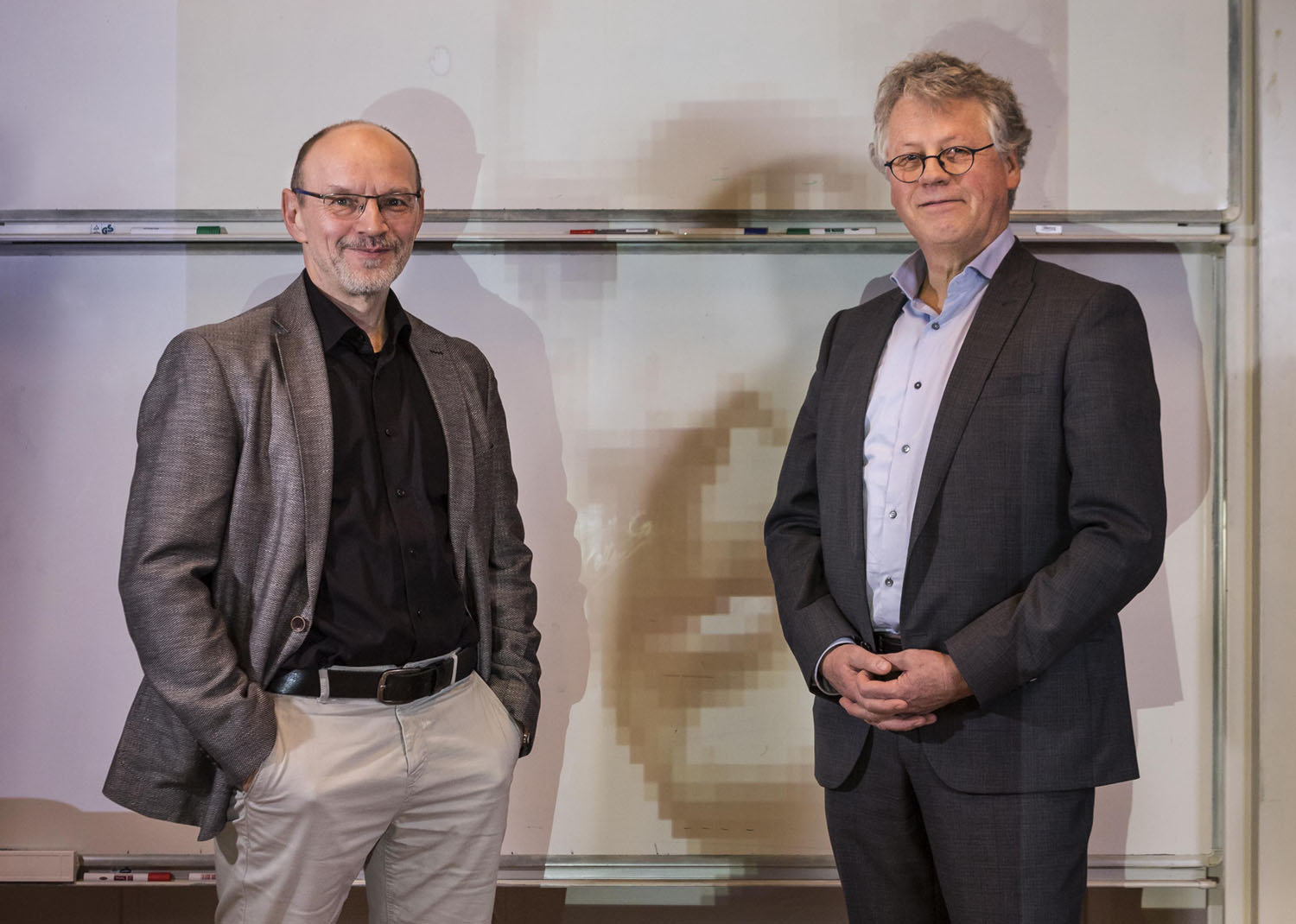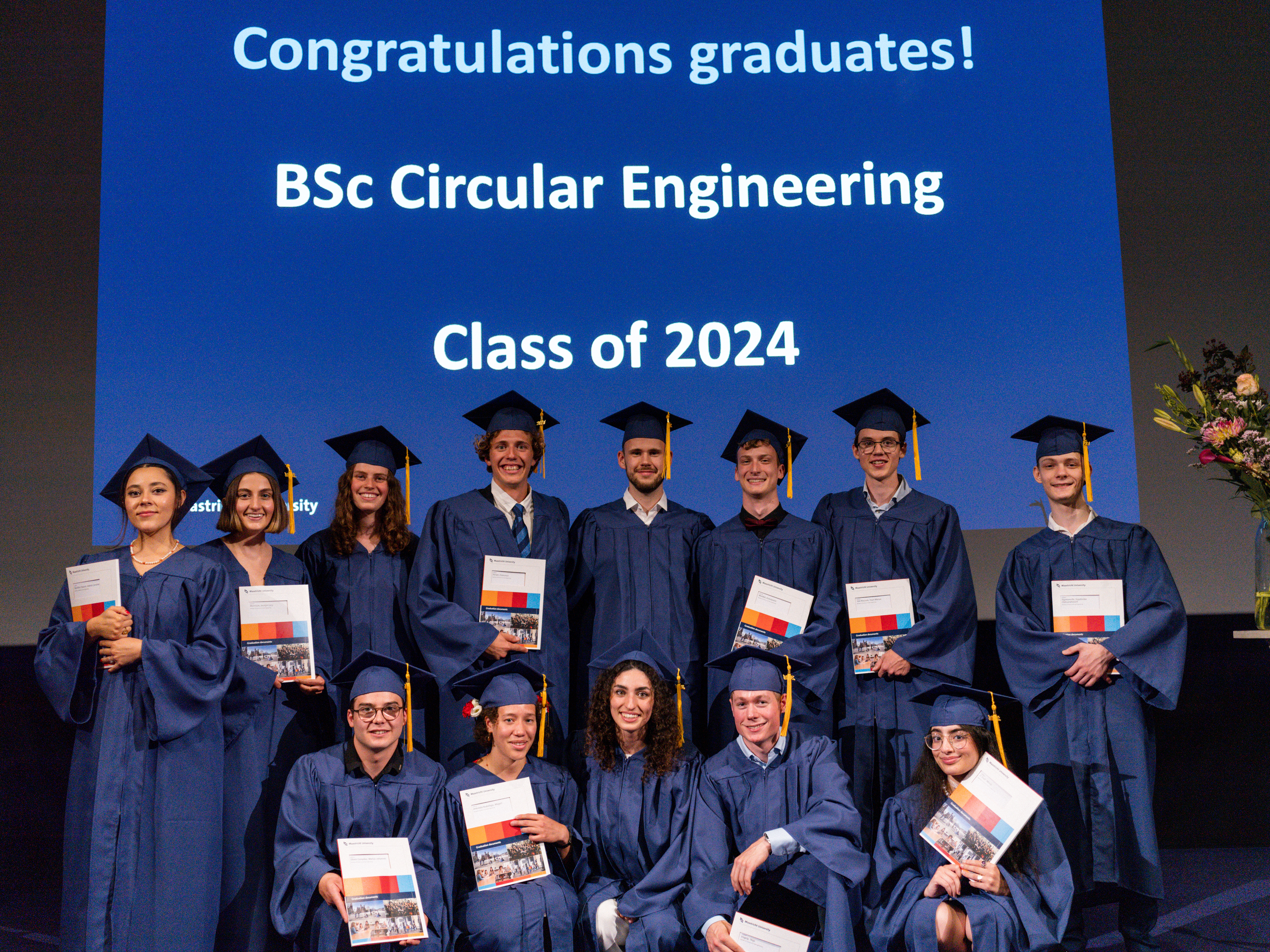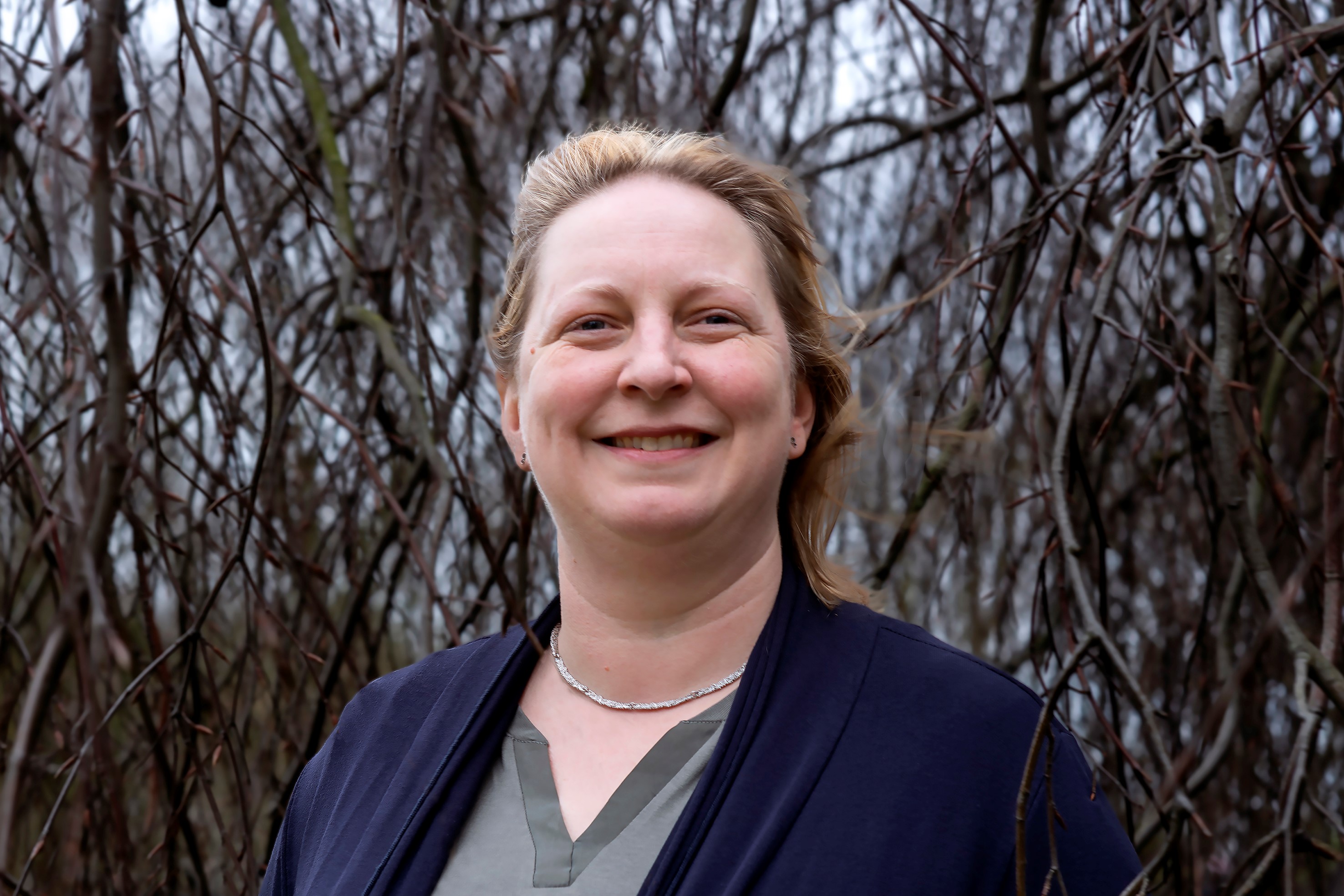Solid as a cloud
With his new project Solid, the inventor of the World Wide Web, Tim Berners-Lee, tries to give users back ownership of their data. The internet hasn’t developed in the way he intended it. Data science progresses at a dizzying pace – are the people in the driver’s seat aware of their responsibility? We asked Gerhard Weiss, Professor of Computer Science and Artificial Intelligence and Frank Thuijsman, Professor Strategic Optimization and Data Science.
He has invented the internet. But rather than resting on his laurels and living out his days googling his own name, Tim Berners-Lee is currently working on a web decentralisation project called Solid: Social Linked Data. Users could store their own data in pods (personal online data stores) and compartmentalise it. That would mean keeping apps and data separate, thus giving individuals true ownership of their data.
“The motivation for producing so many free apps is the profit to be made from harvesting people’s data,” explains Gerhard Weiss, the chair of the Department of Data Science and Knowledge Engineering (DKE). “Currently, the users’ data is the product. Solid would radically change how the internet works.” App developers can still access e.g. contact information in order to facilitate development but the information would be communicated directly from your solid pod – with your permission – rather than be stored on a company’s server.
Prof-IT
“Until recently it was very difficult to have e.g. your own pictures removed from Facebook – because they are stored on their servers. Most people don’t read the terms and conditions they agree to; so you might not even know what data is saved and which parties have access” explains Frank Thuijsman. Weiss adds that it’s not just about fraud. “Everyone has a fundamental right to privacy. And companies like Google have so much information on you: all your emails, where you’ve travelled, what you’re interested in, things you’ve deleted and long forgotten about…”
Text continues below the picture


Gerhard Weiss (1962) is Chair of the Department of Data Science and Knowledge Engineering (DKE) at Maastricht University and Professor of Artificial Intelligence and Computer Science. He holds a PhD in Computer Science from Technical University Munich and has been consulting various companies on intelligent technologies.
Frank Thuijsman (1958) is Professor of Strategic Optimization and Data Science and a member of the DKE management team. He is the initiator of KE@Work, which allows DKE bachelor students to help local companies on a project basis for two years. He holds a PhD in Mathematical Game Theory from Maastricht University.
As people begin to realise what is going on, the pressure on companies to self-regulate increases. If one doesn’t want to trust that sort of thing, legal changes like the EU’s GDPR can also protect users. But according to Thuijsman, the devil’s in the detail: “It’s not like all of a person’s data is in one single file, which you can neatly delete. Developers didn’t prioritise privacy until they had to.” If it works, Solid would be a kind of data safe that users control. “Having seen how the internet has developed, Berners-Lee now tries to restore the original vision.”
Naiv-IT?
Has he been online and is now seeking redemption for the narcissistic, rapacious, bigoted, pornographic golem he has unleashed upon the world? “I don’t think anyone could have foreseen what would become of the World Wide Web back when it was ushered in,” says Weiss, “all Berners-Lee probably just wanted was to create a kind of democratic space in which people could communicate and share ideas.” Was the ruthless financial exploitation of that technology really unforeseeable? Or are does the field of IT focus on technical solutions at the expense of reflecting on the ethical implications of innovation?
The DKE professors have seen a surge in popularity – but also a shift in attitudes. “Here at UM, we’ve been researching and developing AI for 25 years now – so since before the term data science was coined. You can definitely see from the number of applicants that more and more people are interested. We’re doing research and education on artificial intelligence and data science at the intersection of mathematics and computer science. At the same time we are fully aware of the societal responsibility we have. In order to address the ethical aspects of AI and automated decision making, we have for instance included this as an important topic in the mandatory course on Philosophy and AI.”
Responsibil-IT!
“We play a significant role in developing new AI technologies like face or emotion recognition, which can be very useful in areas such as health care or security. But unfortunately it could also be used for more sinister ends.” Thuijsman cautions against throwing the baby out with the bathwater: research must continue. “Regulation is always playing catch-up with technology but you can already see e.g. many initiatives by researchers against autonomous lethal weapons.” He reckons that, like with nuclear technology, there will eventually be agencies that regulate AI developments. Weiss and Thuijsman think the benefits far outweigh the danger.
What about Berners-Lee though? Will he succeed in re-democratizing the internet? “It’s too early to say really: at the moment, Solid isn’t for end users but for developers. A lot will depend on the usability and design,” says Thuijsman. The key question is whether people are willing to change their habits and make compromises with regards to convenience. “People would have to know a bit more about data science to understand the benefits of switching. I guess the willingness will increase with every new scandal,” laughs Weiss. “But Solid has already managed to accelerate the discussion.”
Also read
-
"We are the pioneers in a brand-new field of engineering sciences, not just in Maastricht but globally as well", says Francesco Ferrari about the group of thirteen students, himself included, who in July received the first bachelor's degree in Circular Engineering.
-
Maastricht University received grants for three of the ten research projects starting in the National Growth Fund program Circular Plastics NL.
-
"I am proud that our new Circular Plastics group published its first completely in-house research," Kim Ragaert says. She founded the research group three years ago, when she moved to Maastricht. Her work has laid the foundations for many innovations in the field of plastic recycling, and she is...


